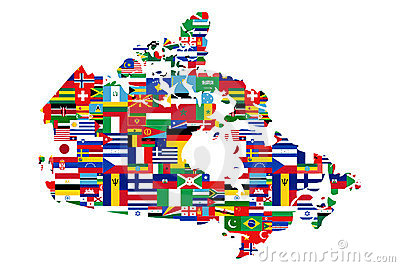
When I was growing up, we always learned in school that Canada prides itself on being culturally diverse. We learned that Canada, as a single entity, was comprised of all sorts of different people from all sorts of different cultures. In a way, it united us and gave us that great sense of patriotism that makes a country strong. But I felt like it also blended us together to the extent that all these differences meshed together and thus ceased to exist.
Perhaps that’s why the world of mental health is only beginning to cater to this great diversity in Canada. In the article “There Isn’t Even a Word for Depression: Immigrants and Mental Health,” the author comments on the different ways different culture perceive mental illness. Because these cultures are submersed within Canadian culture, we think they might somehow fit into the Canadian mental health system. This, as evident in the article, does not seem to be the case.
It makes sense when you look at language. Anyone who’s studied a language knows direct translations rarely make sense, because a language is a unique way of looking at the world and interpreting the array of experiences one has in life. In the case of mental illness, what a native English speaker associates with the word depression will not be relevant to someone whose native tongue is not English. The mental constructs surrounding the word depression are in context of the rest of the English language and the way one has experienced that word in life growing up in a predominantly English setting.
In this way, I feel it’s important to remember that a mental health system based on an English-speaking culture may not be able to support the needs of individuals who didn’t grow up in an English-speaking culture or who grew up in another culture simultaneously.
